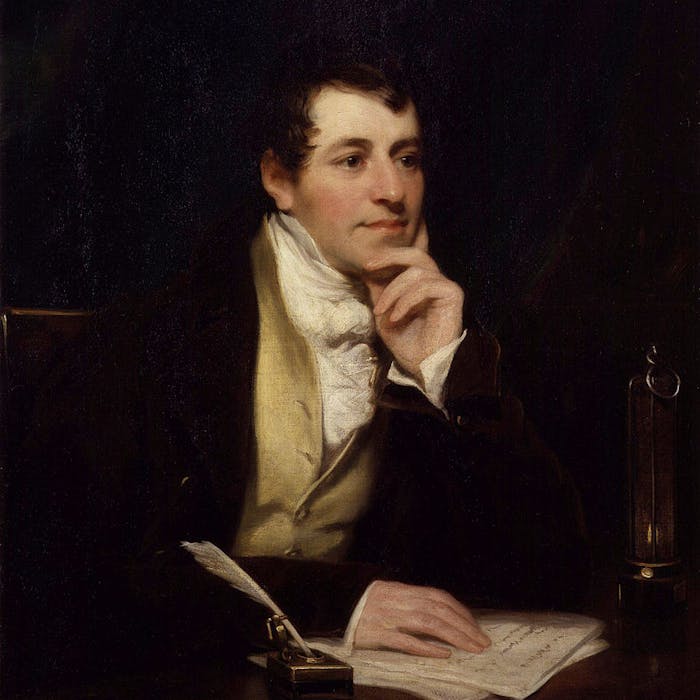
Sir Humphry Davy - one of our greatest scientists
Sir Humphry Davy was a Cornish chemist and inventor best known for his experiments in electro-chemistry and his invention of a miner's safety lamp.
Davy was born in 1778 in Penzance in Cornwall. He went to Bristol to study science at the age of 19 and investigated the nature of gases there. In 1799 he experimented with nitrous oxide and was astonished at how it made him laugh, so he nicknamed it "laughing gas" and wrote about its potential anaesthetic properties in relieving pain during surgery.
In 1800, he published the results of his work in 'Researches, Chemical and Philosophical'. This made his reputation and the following year he was hired as an assistant lecturer in chemistry at the Royal Institution in London. There he was a great success, with his lectures soon becoming a draw for fashionable London society. He became a fellow of the Royal Society in 1803 and was awarded its Copley Medal in 1805.
Davy had a sociable personality, and wide interests. He was a particular enthusiast for poetry, as well as having an intense love of nature and, particularly, of mountain and water scenery. His imaginative and eloquent presentation of scientific lectures made him a popular figure in later life. He was much admired by poets and Coleridge said he went to his lectures "to increase my stock of metaphors."
In 1800, the Italian scientist Alessandro Volta had introduced the first battery. Davy used this for what is now called electrolysis and was able to isolate a series of substances for the first time - potassium and sodium in 1807 and calcium, strontium, barium and magnesium the following year. He also studied the forces involved in these separations, inventing the new field of electrochemistry.
Davy was now considered one of Britain's leading scientists and was knighted in 1812. In 1813, Davy set off on a two year trip to Europe. He visited Paris - even though Britain and France were at war - where he collected a medal awarded to him by Napoleon, and identified the element iodine for the first time.
In 1815, he received a letter from some Newcastle miners which told of the dangers they faced from methane gas. The gas often filled the mines, and could be sparked off by the candles they had in their helmets to light their work. The resulting fires and explosions caused many deaths. Davy separated the flame from the gas, and his 'Davy' lamp later became widely used.
Davy was made a baronet in 1818 and from 1820 - 1827 was president of the Royal Society. He died on 29 May 1829 in Switzerland. His assistant, Michael Faraday, went on to establish an even more prestigious reputation than Davy.
Further reading
Links to external websites are not maintained by Bite Sized Britain. They are provided to give users access to additional information. Bite Sized Britain is not responsible for the content of these external websites.
